SFAA Comments on Proposed Rules for Federal Maritime Commission Financial Assurance Requirement
November 13, 2020
Via Electronic Mail: secretary@fmc.gov
Secretary Rachel E. Dickon
Federal Maritime Commission
800 North Capitol St N.W.
Washington, DC 20573
Re: Federal Maritime Commission Docket No. 20-15
PVO Financial Responsibility Rulemaking
Dear Secretary Dickon,
As a leading representative of the surety bond industry, The Surety & Fidelity Association of America (“SFAA”)1 is writing to provide comments on the potential regulatory changes to the Federal Maritime Commission’s (“Commission”) passenger vessel operator (PVO) financial responsibility requirements. SFAA appreciates the opportunity to provide input to the Commission as it considers updating its financial responsibility requirements. Although the changes articulated in the proposed rule would provide added clarity to the definition of nonperformance of transportation, the proposed revisions would significantly broaden the obligation, particularly if the Commission allows consumers a direct right of action on the bond. Some of the changes articulated in the proposed rulemaking, namely the strengthening of the definition of nonperformance and potentially allowing consumers a direct right of action on the surety bond, would adversely impact the availability of surety credit for this type of obligation. The following are SFAA’s full comments on each section of the proposed rulemaking.
Defining Nonperformance of Transportation
Under this section of the proposed rulemaking, the Commission is specifically seeking input on:
- Necessary changes to the Commission’s regulations, including the financial responsibility instrument forms, to implement the revised definition of nonperformance of transportation;
- Whether this change will increase or decrease claims for refunds against PVO financial responsibility instruments (i.e., bond, insurance, guaranty, or escrow agreement), and if so, the magnitude of the increase or decrease (including number of claims and total dollar amounts paid to passengers); and
- Whether this change will increase or decrease the cost to PVOs of obtaining compliant financial responsibility instruments (e.g., higher or lower premiums or collateral requirements), and if so, the magnitude of the increase or decrease (i.e., dollar amount);
The change in the definition of nonperformance proposed by the Commission is overly stringent and will increase the number of claims against this obligation, thereby increasing the likelihood of exposure under the surety bond. A universal standard of requiring refunds if boarding is delayed by 24 hours would add a significant burden on PVOs, particularly during a period of great uncertainty around travel given the impact of the COVID-19 virus. Not only would this likely increase the amount of full refunds issued but it would also add compliance costs to operationalize procedures to process refunds based on a 24-hour delay to the voyage. This would inevitably increase nuisance claims against PVOs adding time and cost which would ultimately be reflected in how sureties underwrite the obligation. For example, sureties likely will require PVOs to have stronger balance sheets, specifically more cash on hand or larger lines of credit, thereby narrowing the universe of PVOs eligible to receive a surety bond guaranteeing this obligation.
SFAA recommends relaxing the definition of nonperformance to a period of time greater than 24 hours, a minimum of 72 hours, to ensure PVOs are not inundated with claims, particularly during a period of great uncertainty for travel that we are currently experiencing.
Furthermore, there is uncertainty about what specifically is covered under the bond in response to a claim based on the new definition of nonperformance. Specifically, a passenger’s unilateral cancellation should be excluded from coverage under the bond. SFAA also requests clarity around what passenger expenses are specifically covered as part of the refund as a result of the PVOs nonperformance.
Process for Obtaining Refunds
Under this section of the proposed rulemaking, the Commission is specifically seeking input on:
- To whom passengers should submit requests for refunds under the revised procedures.
- Should passengers submit refund claims to the financial responsibility instrument providers directly (e.g., surety company, insurer, guarantor, or escrow agent)? Alternatively, should passengers submit refund claims to the PVO, and the PVO in turn authorizes payment from the financial responsibility instrument (similar to the current procedure for escrow agreements)?
SFAA strongly believes that the PVO should continue to serve as the primary party designated to receive and handle claims submitted by passengers. If the PVO goes into liquidation or if there is no response from the PVO, then claims could be submitted to the surety. Currently, sureties in this line of business do not generally have the claims handling capability to process individual claims against the financial responsibility instrument. Implementing a system to allow a direct right of action against the surety bond, without requiring a judgment, will make claim handling much more involved, expensive, and tedious. If sureties are designated as the direct claims handling entity with an investigatory requirement under the new regulatory regime, many will likely exit the market.
SFAA recommends two alternative approaches to the recommended process:
(1) Claims be submitted directly to the Federal Maritime Commission as the obligee and beneficiary of said surety bonds, and the FMC may then submit verified requests for payment to the sureties based on its review of the claim; or
(2) Claimants be required to obtain adjudication of its claim before submitting their claims to the surety.
The net effect of the proposed changes referenced above would likely lead to increased premium costs or a lack of availability for surety bonds. It is unclear to what extent this would increase the cost of a surety bond as increased liabilities or losses under the bonds play a role in pricing and each surety’s cost structure varies based on its costs associated with managing any expected increase in evaluation time and the number of claims on said bonds. In general, sureties set rates for a particular obligation, in part, based on the company’s financial position. Furthermore, the sureties will likely increase collateral requirements for issuing bonds under the proposed rules given the increased risk and increased claims likely to arise under said bonds.
We appreciate the opportunity to comment on the proposed changes to the Commission’s PVO financial responsibility requirement and stand ready to answer any questions you may arising from our comments.
Sincerely,
Julie Alleyne,
General Counsel and Director of Policy
____________________
1 SFAA is a trade association of more than 425 insurance companies that write 98 percent of surety and fidelity bonds in the U.S. SFAA is licensed as a rating or advisory organization in all states and it has been designated by state insurance departments as a statistical agent for the reporting of fidelity and surety experience.





